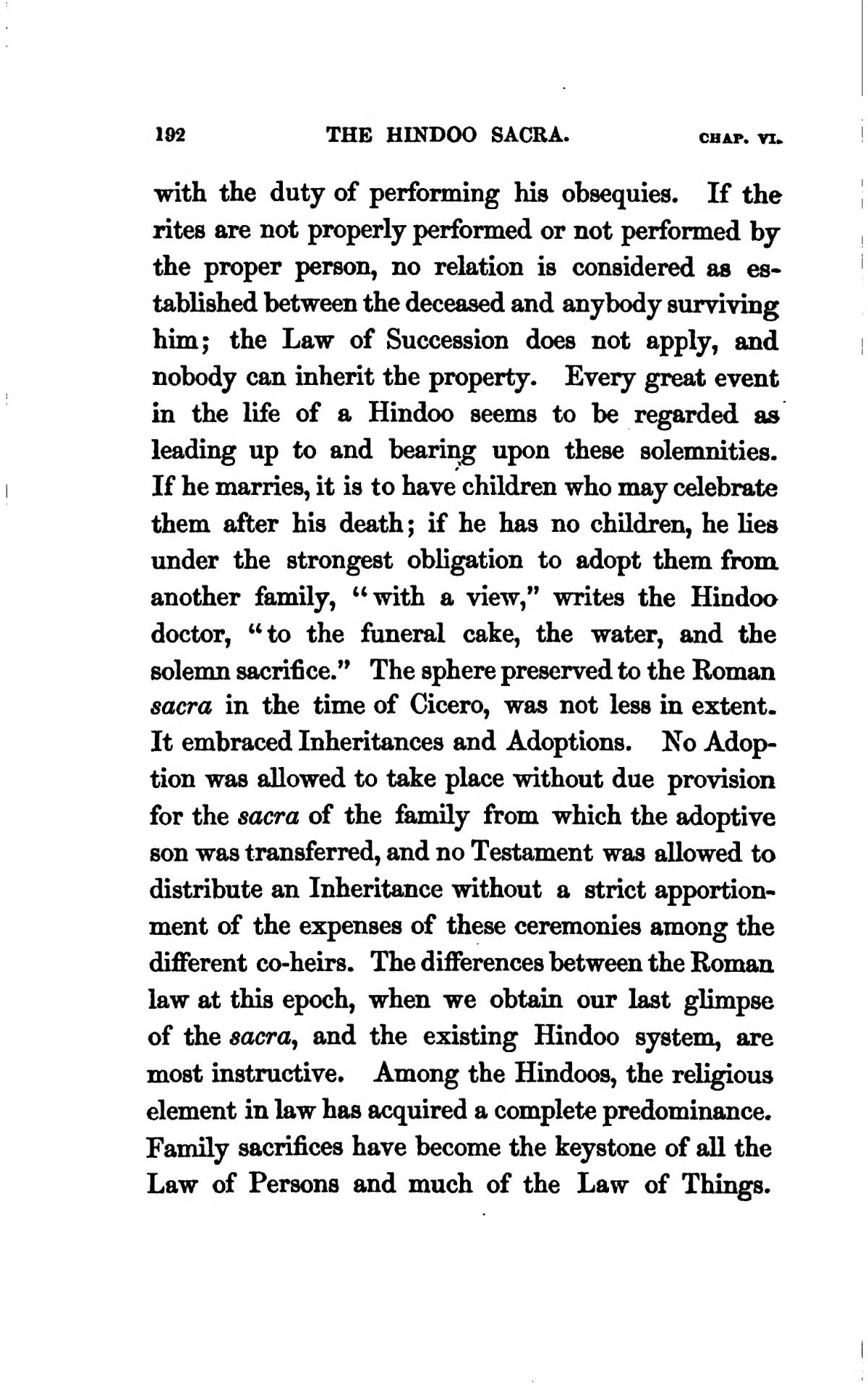with the duty of performing his obsequies. If the rites are not property performed or not performed by the proper person, no relation is considered as established between the deceased and anybody surviving him; the Law of Succession does not apply, and nobody can inherit the property. Every great event in the life of a Hindoo seems to be regarded as leading up to and bearing upon these solemnities. If he marries, it is to have children who may celebrate them after his death; if he has no children, he lies under the strongest obligation to adopt them from another family, "with a view," writes the Hindoo doctor, "to the funeral cake, the water, and the solemn sacrifice." The sphere preserved to the Roman sacra in the time of Cicero, was not less in extent. It embraced Inheritances and Adoptions. No Adoption was allowed to take place without due provision for the sacra of the family from which the adoptive son was transferred, and no Testament was allowed to distribute an Inheritance without a strict apportionment of the expenses of these ceremonies among the different co-heirs. The differences between the Roman law at this epoch, when we obtain our last glimpse of the sacra, and the existing Hindoo system, are most instructive. Among the Hindoos, the religious element in law has acquired a complete predominance. Family sacrifices have become the keystone of all the Law of Persons and much of the Law of Things.
Page:Ancient Law.djvu/205
102
THE HINDOO SACRA.
CHAP. VI.
